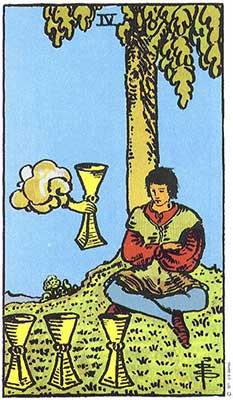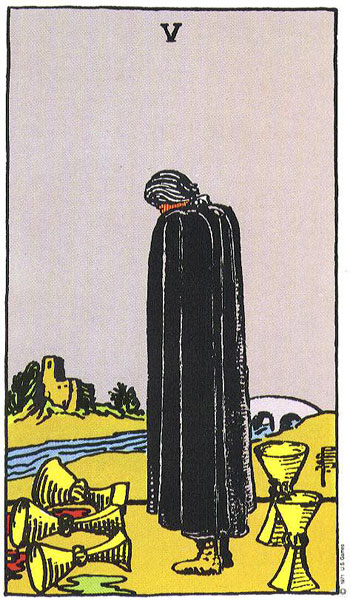So, I’m sitting there, across from a rather bothered woman. My cards are on the table between us and I’ve explained what they are saying about her husband. She doesn’t believe me. Her arms are folded. She’s leaning back in her chair and looking at me like she can’t believe I just said what I did. Her eyes are narrowing and her tongue is working around the inside of her mouth and she’s staring daggers at me.
Why? Because she asked me if her husband was cheating on her and I told her “No.”
You would think that was good news. I would think that was good news. Learning that her husband loves her and is faithful to her pissed this woman off. She was so sure he was cheating. She was so sure I was going to confirm her suspicions. When the cards contradicted her she had a choice. She could examine herself and what she was thinking and why. But she didn’t. She chose to think the worst of her husband and conclude that I was a fraud.
Suspicion and distrust have a place but it’s at the end of the line of options not the beginning. Frequently enough, I see people whose first reaction to situations is suspicion. They rapidly find a target for their suspicion and convince themselves that they are clever and have it all figured out. Given time they even get self-righteous about it. But they aren’t clever. They don’t have it all figured out. They are afraid and insecure. Those two feelings make people do whacky things.
This woman sat across from me and told me a list of events that could have been innocent or not. She had no evidence that her husband was up to no good. All she had were suspicions based on how she felt. I’m all for trusting your gut but your gut needs to be educated. (that is a blog post for another day)
People who default to suspicion use it as a defense mechanism to combat their insecurities and fears. They don’t require proof. They just know. It makes them feel in control. It feels like they have a handle on the things that are hurting them and that those things are someone else’s fault. That is so much easier for them than the self-examination they really need to do.
While they are protecting themselves they are destroying their relationships. Suspicion is corrosive. It is hurtful. Damaged trust is very difficult to repair. It’s especially hard when the person who no longer trusts you has no good reason not to. How do you defend yourself against false charges and prove you didn’t do something? You can’t.
This angry, hurt woman made snide comments about my skill as a reader. Knowing I don’t give refunds she insinuated that I should since I wasted her time. There were a few more choice tidbits. I didn’t respond to any of them. She is, of course, going to tell all her friends that I’m no good and a waste of money. I wished her well. I also smudged my space and put her name in the “Fired” file.
Truthfully, I don’t care that she thinks I’m a fraud. I feel bad for her husband because she has convinced herself he is up to no good and there is nothing that will change her mind. Her attitude is going to end her marriage and she will blame him and not see that it was all her doing.









